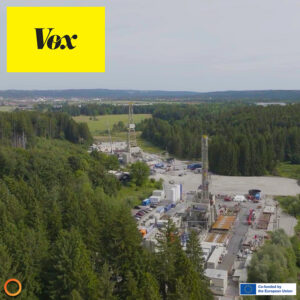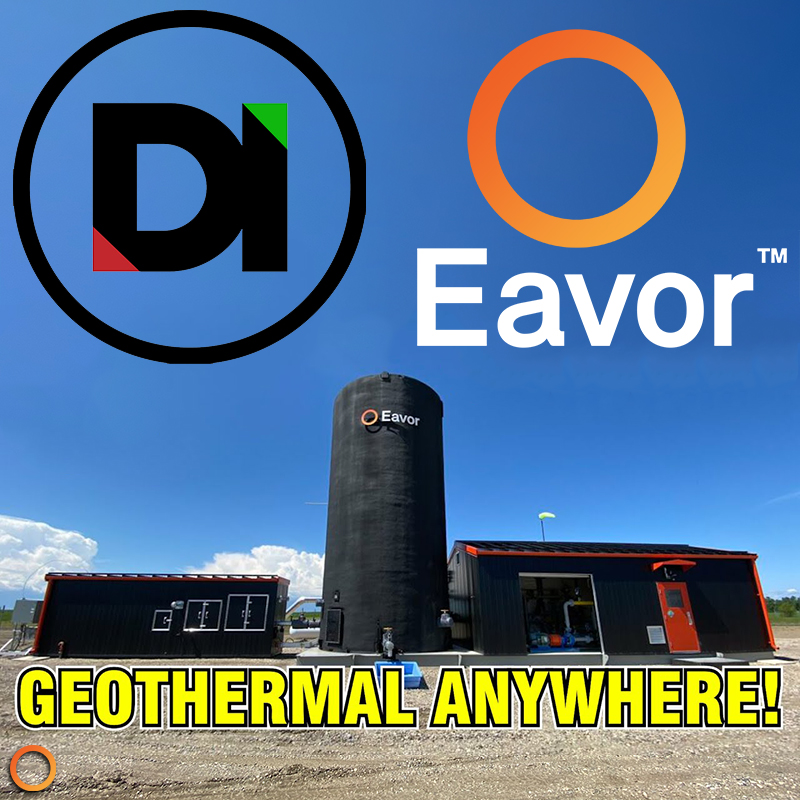Vox recently published a comprehensive feature article that provides detailed insights into the vitality and longevity of multiple geothermal technologies, including Eavor. According to the article, some engineers believe closed-loop systems have a major advantage because of its conduction-based technology.
The article suggests that conventional systems could result in fluid loss within the granite rockbed during the circulation process, which could potentially induce seismic activity. The article further explains that tensions such as these have constrained the geothermal industry over the last two decades, resulting in a stagnation of federal funding for start-ups and operations in the United States. Consequently, this has led some current critics to be skeptical about geothermal’s readiness to be globally scaled.
Arnab Datta, a senior counsel at Employ America with expertise in policy impediments to geothermal energy, explained to Vox correspondent Dylan Matthews that federal interest and funding criteria require a project to have strong certainty about its commercialization.
Another obstacle geothermal faces in the United States is financial support. Despite being the world’s leading producer of geothermal electricity in 2022, American geothermal power contributed only 0.4 percent of the total electricity generated in the country. According to the U.S. Energy Information Administration (EIA), this was eight times less than solar, 25 times less than wind, and 45 times less than nuclear power.
Jefferson Tester, a previous professor at MIT and now at Cornell, says these statistics are likely reflective of the need for substantial upfront investment in drilling and resource evaluation for geothermal energy production. This demands substantially high investments.
Amidst these challenges, Eavor is not only gaining monumental investments, but thanks to a recent landmark partnership with OMV, the company has now achieved commercialization of its technology in Europe. This investment, as well as continued support from Eavor’s generous partners, secured the success of the world’s first commercial power plant in Geretsried, Germany. Furthermore, this promises large-scale deployment of Eavor-Loop™ technology in other German cities, as well as Austria, Romania, and the world.
The commercialization of closed-loop geothermal not only emphasizes its scalability, but its tangible ability to provide clean power and promote energy autonomy across the globe. The geology in Geretsried used that the subterranean landscape of the area exhibits a typical geothermal gradient, and according to Eavor CEO John Redfern, this fact played a role in the decision to develop there.
“Anyone can produce geothermal in one of its special niche areas where it traditionally works– Iceland, for example. That said, no one is going to be impressed if we demo geothermal in Iceland. To prove that we are a truly scalable, go-anywhere solution, we need a demonstration in a more typical location like Geretsried,” said Redfern.
Insights such as these were gained from a group consisting of drilling experts, engineers, and geologists, and they have collectively enabled Eavor to navigate the evolving energy landscape. This collaborative and innovative approach not only enhances the efficiency of transitioning to clean energy but it also reinforces Eavor’s status as a true pioneer in cleantech. Eavor’s “always on” energy solution has great potential to play a pivotal role in the future of cleantech, providing sustainable, reliable, baseload energy to meet the world’s growing energy demands.



















